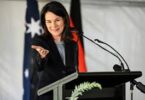F.P. Report
ISLAMABAD: The Federal Budget 2022-23 with a total outlay of 9502 billion rupees has been announced, encompassing measures for sustainable economic growth, industrial and agriculture development and relief for the poor people.
Presenting the budgetary proposals for the next fiscal year in the National Assembly on Friday, Finance Minister Miftah Ismail said 3950 billion rupees will be spent on debt servicing. He said that a budget of 800 billion rupees has been earmarked for the next year’s PSDP. He said 1523 billion rupees has been set aside for country’s defence and 550 billion rupees for civil administration’s expenditure. Besides, 530 billion rupees have been allocated for pension, while 699 billion rupees for targeted subsidies for the benefit of the poor people. An amount of 1242 billion rupees has been proposed for grants, which include the grants of Benazir Income Support Programme, Bait-ul-Mal and other departments.
The Minister said that FBR revenue has been estimated at 7004 billion rupees for the next fiscal year. This includes 4100 billion rupees share of provinces. The net revenue with the Federal Government will be 4904 billion rupees. The non-tax revenue will be 2000 billion rupees.
BUDGET RELIEF: The Finance Minister said the budget of BISP has been increased to 364 billion rupees for the next fiscal year. In addition, 12 billion rupees have been allocated for provision of subsidy on essential commodities through Utility Stores Corporation. An additional amount of five billion rupees has been set aside for Ramadan Package.
The Finance Minister said the facility of Benazir Kafalat Cash Transfer Programme will be available to nine million deserving families under BISP in the next fiscal year. For this, 266 billion rupees have been reserved. Miftah Ismail said that the scope of Benazir Education Stipend Programme will be expanded to ten million children. Over 35 billion rupees have been proposed for this programme. Ten thousand more students will be given Benazir Undergraduate Scholarship at a cost of nine billion rupees. The network of Benazir Nashonuma Programme will be expanded to all the districts, which will cost about 21.5 billion rupees. Besides, six billion rupees have been set aside for Pakistan Bait-ul-Mal for the medical treatment and assistance of deserving families.
The Finance Minister announced fifteen percent increase in the salary of government employees along with merger of the adhoc allowances. He said the tax exemption slab for salaried class has also been increased from 600,000 rupees to 1.2 million rupees. This step will be benefit the salaried people and enhance business activities. The slab for business individuals and associations of persons has been increased from 400,000 rupees to 600,000 rupees.
He said tax on profit of Saving Certificates, Pensioners Benefit Accounts and martyrs family welfare accounts has been slashed from 10 to 5 percent. The Minister said a new fixed income and sales tax system is being introduced for small retailers. Under this system, tax ranging from 3,000 rupees to 10,000 rupees will be collected through electricity bills. This will be a final settlement and FBR will not be entitled to ask any questions about this tax.
Miftah Ismail said there is a proposal to increase initial depreciation charges for industries and other businesses from 50 percent to 100 percent in the first year. Besides, he said all the taxes from industrial units during import of raw material will be considered as adjustable to protect working capital of the business community.
The Finance Minister proposed tax exemption on import and local supply of solar panel. He said soft loans from banks will be arranged for the people who consume less than 200 units of electricity to purchase solar panel. In order to facilitate the farmer community, the Minister announced to withdraw sales tax on tractors and agricultural machinery as well as on the supply of seeds of various crops, including wheat, maize, canola, sunflower and rice. Besides, he said, customs duty on agricultural machinery and its industry has also been abolished. The Minister said fundamental changes have been proposed in alternate dispute resolution mechanism to facilitate taxpayers. Miftah Ismail said customs duty, additional customs duty and regulatory duty on around 400 tariff headings have been rationalized to strength manufacturing sector. He said tariff structure on synthetic yarn has also been rationalized fulfilling the longstanding demand from the textile sector.
He said over thirty active pharmaceutical ingredients and first aid bandages industry have been exempted from customs duty to bring production cost down at local level.
Miftah Ismail said Prime Minister Shehbaz Sharif wants to extend maximum relief to the people, especially the poor during these difficult times.
For this purpose, the government has taken several steps to provide subsidy and assistance. He, however, said that the continuation of this will require more resources. To achieve this, there is a need to impose special tax on higher income earnings in order to divert the resources to the poor people.
Miftah Ismail said our budget philosophy is to enhance agriculture production, especially the edible oil in order to reduce agricultural imports, separately. We need to promote industries to bolster exports and earn valuable foreign exchange. This, he said, will help address the issue of balance of payments on permanent basis.
ENERGY SECTOR: The Finance Minister said that the energy sector has pivotal importance for the people as well as the industries and trade. For these sectors and the people we gave an additional subsidy of 214 billion rupees. He said 573 billion rupees have been earmarked in the next financial year so that the people could afford the electricity in the harsh weather of summer.
He said we released 248 billion rupees for the payment of outstanding amounts in the petroleum sector and 71 billion rupees will be provided in the next fiscal year. He said we will soon announce the new gas tariffs which will be aimed at providing gas to the industries at competitive rates which will help in bolster exports.
EDUCATION SECTOR: The Finance Minister said we have earmarked 65 billion rupees in the current budget for Higher Education Commission. In addition 44 billion rupees have been allocated for the development schemes of the HEC which is 67 percent higher than the previous year.
He said this is manifestation of our commitment towards the youth. He said we are encouraging the provinces to fully fulfill their responsibilities regarding promotion of higher education in the coming years. The HEC budget envisages five thousand scholarships for the students of Balochistan and tribal districts. He said a separate scholarship scheme has also been included for the coastal areas of Balochistan. The Finance Minister announced to provide one hundred thousand laptops on easy installments to the students across the country. Funds have also been allocated for provision of state of the art equipment to upgrade education of engineering and technology.
INDUSTRIES-TRADE: Finance Minister Miftah Ismail said an industrial policy is being introduced in collaboration of Asian Development Bank to strengthen industrial base of the country. He said the Prime Ministerhas directed to immediately clear all claims of exporters.
Continued on B. Page






